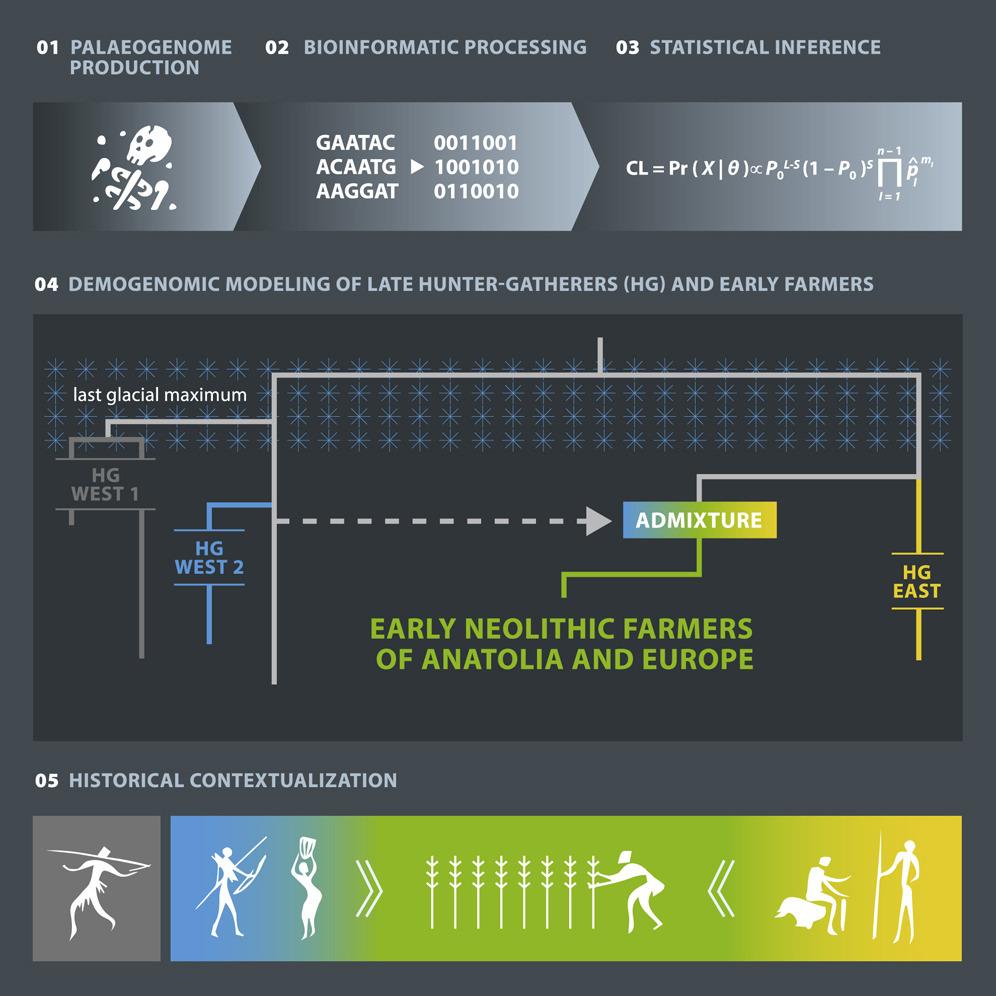Marchi, N., Winkelbach, L., Schulz, I., Brami, M., Hofmanova, Z., Blocher, J., Reyna-Blanco, C.S., Diekmann, Y., Thiery, A., Kapopoulou, A., Link, V., Piuz, V., Kreutzer, S., Figarska, S. M., Ganiatsou, E., Pukaj, A., Struck, T. J., Gutenkunst, R. N., Karul, N., Gerritsen, F., Pechtl, J., Peters, J., Zeeb-Lanz, A., Lenneis, A., Teschler-Nicola, M., Triantaphyllou, S., Stefanovic, S., Papageorgopoulou, C., Wegmann, D., Burger, J., & Excoffier, L.
Cell.
Dr. Gutenkunst worked with European collaborators who sequenced the DNA of 15 humans from the European Neolithic era (6500 - 8500 years ago). During this era, European populations were transitioning from a hunter-gatherer lifestyle to farming. They analyzed the DNA of these ancient humans along with contemporary Europeans to measure how much natural selection had changed over time. Surprisingly, they found little change, suggesting that the advent of farming did not dramatically change how natural selection acted on Europeans.
Link to paper: https://doi.org/10.1016/j.cell.2022.04.008






